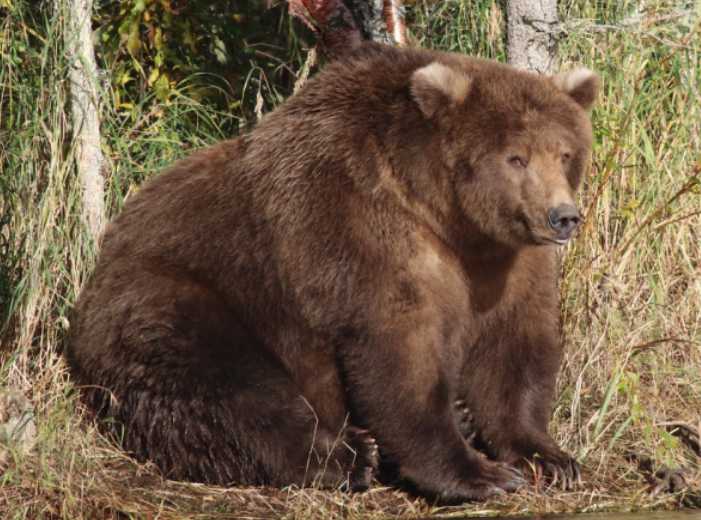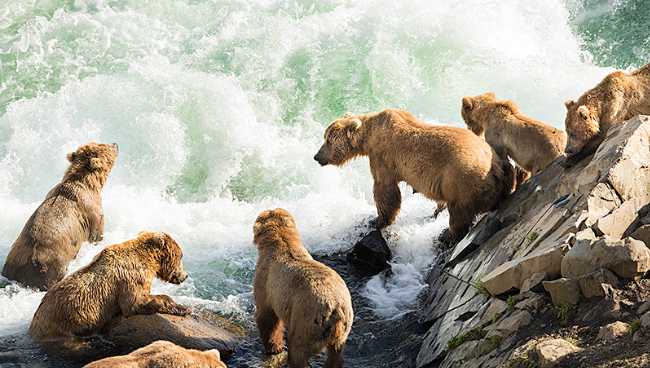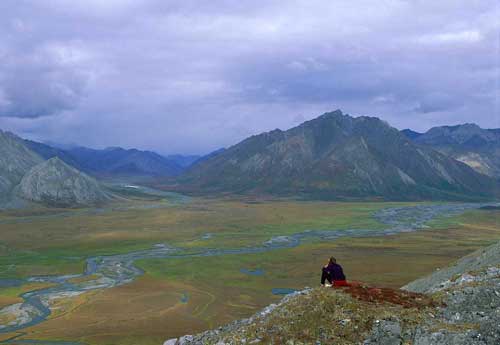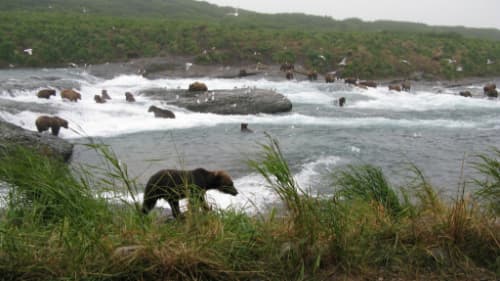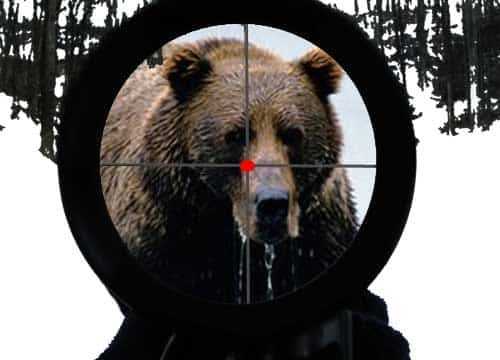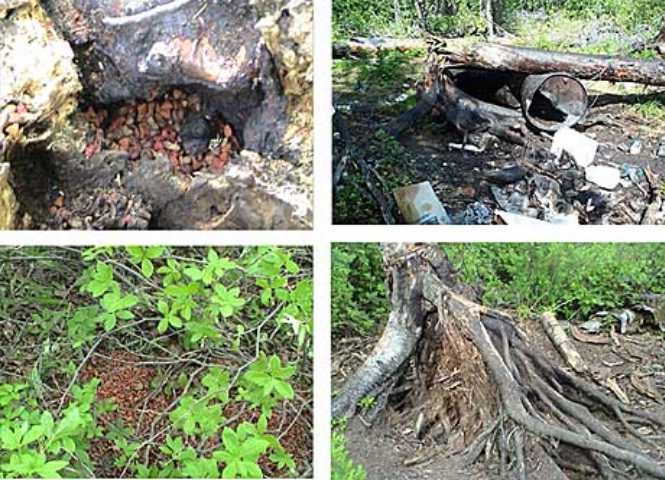Ruling protects Kenai brown bears and maintains the Skilak recreation area for wildlife viewing
ANCHORAGE, Alaska —A coalition of groups hailed a federal court decision last week that upheld a 2016 U.S. Fish and Wildlife Service rule that enshrines the Kenai National Wildlife Refuge’s long-standing prohibition on brown bear baiting, along with its decades-long approach of managing the Skilak Wildlife Recreation Area for wildlife viewing and education.
The decision confirms that the Fish and Wildlife Service necessarily has the authority to manage wildlife on lands it oversees and to set management priorities within Refuges.
“The court soundly rejected the continuing attempts of the State of Alaska and Safari Club trophy hunters to decimate the iconic wildlife populations of our magnificent Kenai National Wildlife Refuge,” said Dr. David C. Raskin, president of the Friends of Alaska National Wildlife Refuges. “The science-based regulations in the 2016 Kenai rule uphold the legal obligation of the Fish and Wildlife Service to maintain wildlife populations in their natural diversity. This is a great victory for intelligent management for the long-term benefit of wildlife for all Americans to enjoy and cherish.”
[content id=”79272″]
In its ruling in State of Alaska v. Bernhardt, released on Friday, Nov. 13, the U.S. District Court upheld most portions of the rule, including the ban on brown bear baiting and emphasis on wildlife viewing in the Skilak area.
“This decision means that the Kenai Refuge will continue to function as a true refuge for vulnerable Kenai brown bears and other species,” said Rachel Briggs, staff attorney with Trustees for Alaska. “The ruling further maintains the Skilak area for wildlife viewing, and confirms the authority of the Fish and Wildlife Service to manage wildlife refuges to support an array of uses and protect wildlife diversity.”
The nonprofit law firm Trustees for Alaska filed a motion to intervene on behalf of 15 clients in February 2017, arguing along with the Fish and Wildlife Service that the agency has an obligation to manage wildlife refuges for biological health and diversity, and necessarily has the authority to do so.
The court vacated the portion of the rule that prohibited the use of certain firearms along the heavily-used Kenai and Russian River corridors. The court held that, while the agency reasonably adopted the rule to protect public safety, it failed to adequately explain its decision to not evaluate the potential environmental impacts of the restriction.
While this is an important win for Kenai brown bears, the Fish and Wildlife Service recently proposed a rule that would allow brown bear baiting within the Kenai Refuge for the first time ever. Trustees for Alaska is working with partners to encourage the Fish and Wildlife Service to drop the proposal and continue to protect Kenai brown bears, other wildlife, and recreational uses that include wildlife viewing.
[content id=”79272″]
Trustees represents the following clients in the case: The Alaska Wildlife Alliance, Alaskans for Wildlife, Friends of Alaska National Wildlife Refuges, Denali Citizens Council, Copper Country Alliance, Kachemak Bay Conservation Society, Defenders of Wildlife, National Parks Conservation Association, National Wildlife Refuge Association, Northern Alaska Environmental Center, The Wilderness Society, Wilderness Watch, Alaska Chapter of the Sierra Club, Center for Biological Diversity, and the Humane Society of the United States.
“We believe that the Fish and Wildlife Service is obligated to protect Kenai brown bears on the refuge and this opinion recognizes the agency’s authority to do just that,” said Nicole Schmitt, executive director of the Alaska Wildlife Alliance. “At a time when so many of Alaska’s wildlife protections are being rolled back, this ruling comes as a sigh of relief for all those who enjoy the Refuge and its wildlife.”
“Victory! A federal district court in Alaska has delivered a win for brown bears and other wildlife on the Kenai National Wildlife Refuge,” said Nicole Whittington-Evans, Alaska program director, Defenders of Wildlife. “Allowing brown bear baiting on the Kenai National Wildlife Refuge is inconsistent with the federal government’s responsibility to manage these public lands for biological integrity and diversity.”
“We are pleased the court has reaffirmed that the US Fish and Wildlife Service acted in a lawful manner in carrying out its responsibility to conserve wildlife in their natural diversity on the Kenai National Wildlife Refuge by prohibiting brown bear baiting, and maintaining the Skilak area for wildlife viewing,” said Fran Mauer, Alaska Chapter Rep for Wilderness Watch. “The Trump administration must abandon their current directions for the Fish and Wildlife Service to hastily approve brown bear baiting, remove federal trapping requirements, and expand access within the Kenai Refuge, all which are clearly inconsistent with this decision.”
“This win confirms that bear baiting doesn’t belong on our national wildlife refuges,” said Collette Adkins, carnivore conservation director at the Center for Biological Diversity. “I’m hopeful that this court decision convinces the Trump Administration to do the right thing and abandon its plan to allow bear baiting on the Kenai National Wildlife Refuge.”
“This win confirms that wildlife refuges exist to protect our vulnerable and threatened species, and the wild systems that depend on them,” said Dan Ritzman, Director of Sierra Club’s Lands, Water and Wildlife campaign. “We are in the midst of a mass extinction crisis, which requires immediate action to prevent the loss of more wildlife. Stopping cruel hunting methods in the Kenai National Wildlife Refuge will allow these public lands to serve their purpose and help slow extinction.”
“The State of Alaska and trophy hunting groups like Safari Club International have failed in their attempt to force the U.S. Fish and Wildlife Service to allow hunters to bait brown bears on the Kenai National Wildlife Refuge,” said Laura Smythe, staff attorney for the Humane Society of the United States. “Luring in and killing brown bears over rotting bait is not only inhumane, but it is also disastrous for the conservation of Kenai’s delicate brown bear population, and this court opinion makes clear that the agency was justified in banning this cruel and unsporting practice.”

